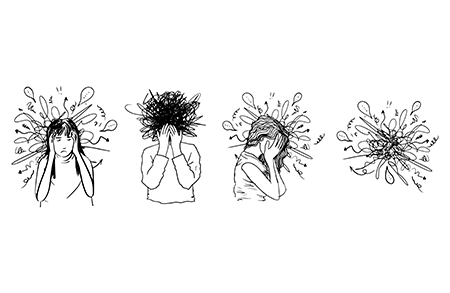 Many experiences in life can be traumatic.
Many experiences in life can be traumatic.
Losing a job, being in a car accident, witnessing another’s suffering, divorce, or bankruptcy are a few of the experiences that can upend your life.
What do these things have in common? They are all situations that can create trauma.
Trauma is not solely abuse, neglect, combat, and death. While these, of course, are areas of rauma, they are not the only situations where we can experience lasting injuries.
What is trauma like?
Anne-Marie* wasn’t sleeping well. She had little to no appetite and noticed that her mood changed as quickly and efficiently as the wind blew. She didn’t know what she was experiencing but knew she had had enough!
Liza* couldn’t shake her stomach-churning anxiety. It seemed everything scared her nowadays, and that was not her norm. Each day, she awoke with this fear that today would be her last or that her children were not safe. She feared that if she fiercely protected her loved ones, she would suffocate them, and they would leave her. But she also thought that if she failed to protect everyone, she might lose them forever. It was chaos in her mind, and, at times, she even questioned her sanity.
Chris* knew why they felt out of control. They had survived a very traumatic childhood and were not at all surprised to hear they were experiencing Complex Trauma. The knowledge was good; they didn’t feel crazy or alone any longer. What they were struggling with now was, “What can I do about it?” Their childhood was over, and they were no longer associated with those who abused them. They just kept saying over and over, “Just forget about it. Just get over it.” But that hadn’t come close to happening, and they were frustrated.
 What can we do about trauma?
What can we do about trauma?
Whether you are struggling with Acute Trauma, Complex Trauma, Secondary Trauma, Generational Trauma, or “I don’t know what kind of” Trauma, I can help.
Anne-Marie* was in the last category of trauma. She had not labeled her symptoms as trauma-related. She knew she had been through some tough stuff recently but never would have put that word to what she had experienced. Like so many, she thought trauma was for those who experienced abuse, were severely neglected, and were war veterans. Learning that her divorce, financial struggles, and strict childhood home were all examples of traumatic experiences created a sense of calm for her.
Liza* and Chris* both knew they struggled with symptoms of trauma. Both were able to name their traumatic events and had tried various techniques to lessen their symptoms. They were close to giving up and trying to make these feelings their new realities. It was time to try something new.
Working with me can make a difference.
The first step to dealing with trauma is to recognize that every event feels differently and that the attached messages may not be the same. Your trauma is yours. It does not matter if someone was with you when it occurred. Their experiences are theirs, just as yours are yours. Neither is right or wrong.
I will walk with you into the depths of the darkness of your trauma. I will honor it as yours and help you get out on the other side. We will talk about life before the trauma, during it, and the aftermath. We will do this without retraumatizing.
Working through trauma requires talking about it, but we don’t have to re-experience it. We will work at your pace – fast enough to do work, slow enough that you will still feel in control.
So often, when we survive trauma, we may be left with a sense of guilt or shame. These feelings are common, but it is not fair to you. Let’s get together and talk about your reality, your pain, your feelings, and your stories. Then, let’s reshape them to help the healing begin and the start of your next chapter!
Contact me today about how therapy can help with trauma recovery.
*These are fictitious names and scenarios used only to illustrate real-life situations.

